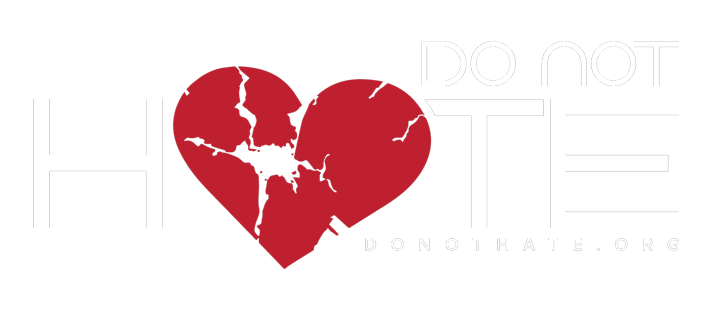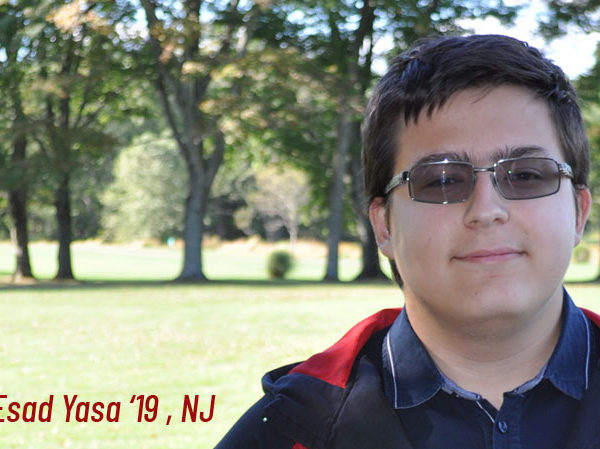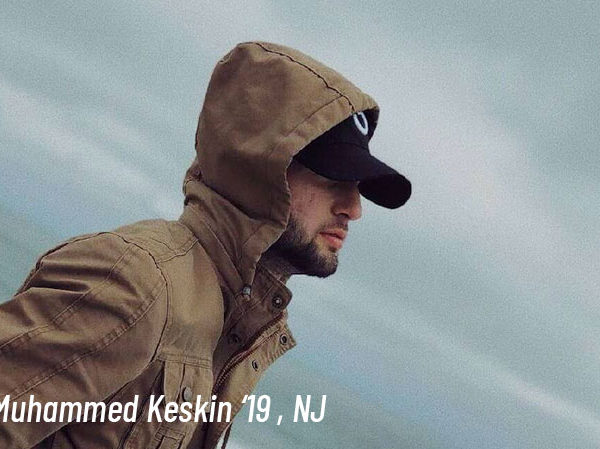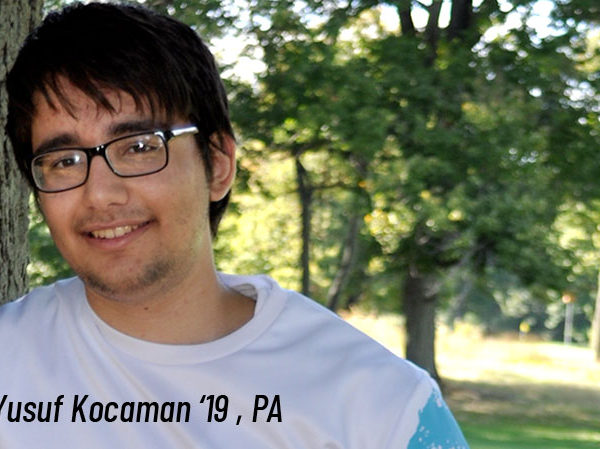In my old school, where I was from 4th grade to 7th grade, bullying was a big problem. People were constantly being bullied around me. It was at a point where it became a continuous loop. Someone would be bullied; in couple weeks he would bully someone else and it would continue like this. For example in 5th grade they kept bullying this girl and one girl even got in a fist fight with this girl. In 6th grade that girl that was getting bullied became the lead bully of the school.
There are more than 7 billion people and 4,200 religions in this world. 7 billion people who are different as fire and water. Socializing is in our nature, yet in our blood; therefore, we are in need of being with other people whom we feel safe with. From the very beginning of the world, we have been creating communities with people that we share the same backgrounds or beliefs. These communities grow and create traditions. On the other hand, religion is a system of beliefs, rules, practices and morals that is used to worship a supernatural force. Religion does not refer one specific tradition or community. As an example, In Islam, there are two major denominations: Sunni and Shia. These two different denominations have different traditions and characteristics. But even in one denomination, you can see hundreds of different communities and people from all backgrounds. But what am I trying to prove with this information?
1. Act – If you want “change” then you have to do something. Be an upstander, not a bystander.
2. Join – Find allies to help create groups, clubs, and movements against bullying.
3. Support – To make the change we must support victims of bullying so they know that they are not alone.
4. Speak up – It is our job to speak up and denounce bullying.
5. Learn – Another key part in fighting against hate is staying educated; so do your research on the topic.
6. Create alternatives – Try your best to hold in your anger and always choose the best, most peaceful way through something.
7. Have a good leader – The leaders are the most important part of the group, so they should be chosen accordingly. He should know what he is doing.
8. Dedication – Dedication is one of the most important things, and it is what causes people to fight back in the first place.
9. Teach tolerance– People must be patient and tolerate while handling certain situations.
10. Look inside yourself – If you know yourself then you will better understand others.
You may know or may not. For 2 years in Turkey, Government rules the country under dictatorship, Imprisons or purges all the opponents groups and parties. Including Kurds, Leftists, seculars, Kemalists and Gulenists.
There are 120.000 purges. If I say 17.000 women and 700 babies are in prison right now, you may not want to know how many men are.
The government pointed certain groups and made the others enemy to these groups. The result is catastrophic.
This is the story of my friend Caner.
If hate is this monstrous feeling that repels people from one another then why does it exist? If everything in this world serves a purpose, what could the purpose of hate be? Does God hate us so much that He created such an abhorrent emotion that divides and torments a society? Just like fire, hate can burn down houses, neighborhoods and even cities in all of its severely devastating rage; it would be of no use to hate a racist.
People assume that the right thing to do is to hate a racist. Hate is not meant to be towards characters, rather it’s meant to be towards characteristics. A racist is the perceived character of a particular person; however racism is the characteristic that you are using to define this person as a racist. The ‘racist’ is a person even without the characteristic of racism that is associated with him or her. So what we have to hate is this characteristic of racism.
Is this going over your head? What does it mean to hate a characteristic? How would it be possible to hate something not tangible? You can see a racist; therefore you can hate him or her. But how can you hate racism?
To hate a characteristic means to do anything you can to change it. So in our case, if we hate racism and not the racist, we would help change these people. We need the world to understand that racism is inhumane in order to overcome the horror of segregation. We need to teach people not to see the color of a person’s skin when they try to interact with them. The world needs to love a person for his or her kindness or sincerity or honesty or diligence.
Gandhi said that “An eye for an eye would make the whole world blind.”The opposite of the aforementioned sort of ‘peaceful hate’ would be to hate the racist; causing him to hate you back and stay away. This wouldn’t change anything now, would it?
Our school, is a small private institution situated in NJ consists of around 130 students. Everyone knows each other and there are rarely big squabbles, other than the occasional argument. We are one big family!
However, lately, we have had some issues with hate instances. For example, a student called another student the N word.
To begin with, we have admitted about twenty-five new students, this year, from around the world, mostly China and Cambodia. Ever since they have arrived, we have attempted to build friendships and welcomed them to our school. They have responded just as warmly to us.
The problem is that overseas racism and hate crime is not taken as seriously as its done here (due to our history). So some of the new students didn’t understand the weight of said word. After learning the mistake they had committed, they apologized to their classmate.
Things like this motivate me to strive for our goal of spreading the word about hate crime. If someone had told these students the consequences of their actions beforehand they would not have even thought about it. That’s why raising awareness is so important. If we can reach as many people as possible and show them the negative effects of hate crime, we can make a change in this world.
Four suspects in Chicago are currently facing charges for the hate crime after torturing an 18-year-old mentally disabled man, in a live video broadcast on Facebook.
In the live video, the man’s wrists are bound together and his mouth is taped shut. While he is captive the four suspects shout racial slurs, slice his clothes with a knife, and was even force him to kneel down and drink water from the toilet. Someone also tapped cigarette ashes on an open wound on the man’s head. In one part of the footage someone is shouting “f- – – white people” and “f- – – Donald Trump”. It is said that he was not targeted for being white but for being mentally disturbed.
Daryl Davis is an American musician, actor, and — you guessed it — a lecturer who deals with racism. Davis has been working to improve race relations, engage in dialogue, and befriend members of the KKK for over 30 years.
It all started in 1983 when he was playing Western music in a white bar, and a patron came up to him and said it was the first time he “heard a black man play as well as Jerry Lee Lewis.”
Davis explained to the man that “Jerry Lee Lewis learned to play from black blues and boogie woogie piano players and he’s a friend of mine.” The man then slowly got closer to Davis and over a drink he admitted that he was a member of the KKK. The two men eventually became friends and the man gave him contact information on KKK leaders.
A few years later, Davis decided to interview Klan members and write a book on the subject. One of the motivation for Davis to write such a book is to find a question that lingered in his head since his childhood: “Why do you hate me if you know nothing about me?” This was a question that was left unanswered during his youth.
He once had a meeting with the Grand Dragon of the KKK in Maryland, Roger Kelly, where he told the secretary to conceal his race when he was arranging the meeting. The meeting took place at a motel, to where Kelly arrived with an armed bodyguard. Davis later became friends with the man.
From that moment on, Davis befriended and convinced 200 KKK members to give up their robes, chronicling many of these episodes in his numerous books.
A Muslim immigrant from Bangladesh has taught us how love can be an antidote to hate, and how violence against violence is not the answer to our ills.
Rais Bhuiyan’s story starts nearly two decades ago, when he first came to the U.S. as an immigrant. In one of his talks, he tells about his experience as he was first coming to the U.S. from Bangladesh, just three months before the 9/11. The pilot of the plane he was flying let him go up to the cockpit and that they had a friendly conversation. He says that something like this happening today is almost impossible and that he can’t even speak Arabic because it is considered as a security threat.
After 9/11, he spoke about an incident in which a man, holding a gun, walked into a store of a gas station he was working at. Thinking it was a robbery, Rais offered him the money in the cash register. The gunman asked him where he was from and even before he could reply, he shot him in the face. Rais lost one of his eyes. His assailant was convicted of murder and was sentenced to death. Luckily, he survived, unlike two of his friends in the gas station.
What Rais did next was very inspiring. Instead of watching him be killed and going on with his life, he fought for his assailant to not be executed. He thought that violence wouldn’t be solved with violence and that this person had to be taught.
When his assailant found out about him fighting for him not to be executed, he wrote a letter telling Rais that he was sorry and that whoever raised him raised him right.
When he was going to be executed he wished to talk with Rais. Rais told him that he never hated him and responded: “I love you bro.” It is amazing how someone who wanted to kill Rais out of hatred was saying that he loved him and even called him brother. Rais then founded a website called “worldwithouthate.org”, where he is fighting against hate.
I think that this is a very touching and powerful story. Just by not hating and loving, he changed the mindset of a man who, if not for the love, might have gone to his grave with full of hate. But with a single act of kindness, this man’s mind was changed forever — even though he was eventually executed.
Recently infamous rapper, Lil B, was in the news for getting banned from Facebook for 30 days. The reason behind the ban was Lil B’s hateful comments towards the white people after the shooting in Las Vegas.
Some of his comments said: “White people are the only ones who really love they guns U can tell they are violent people! I don’t live in fear, I don’t need a gun. and White people so scared they the reason why guns are a problem if white people put down the gunze we all be safe but nope! They violent.”
After Facebook banned the rapper, he argued that these were not hate-laden comments but rather an attempt to start a discussion. After going through different opinions on the subject (both supporting Lil B and vice versa), it sparked a question in my head: Where do we draw the line between hate speech and freedom of speech? And should we really?
From a legal point of view, the Constitution puts it unequivocally: “Congress shall make no law respecting an establishment of religion, or prohibiting the free exercise thereof; or abridging the freedom of speech, or of the press.” It does contain any exceptions to the principle of “freedom of speech.” This amendment strongly protects the speech regardless of it being hateful.
But in Germany, which has a troubled history of Nazism, dozens of words can get you fined. This, however, didn’t stop people from resorting to hate crimes. Germany is a perfect example of this. The number of neo-Nazis and far-right racists are growing every day in Germany.
That is the reason why I believe preserving America’s current position on free speech is crucial for our struggle against hate. We need people sympathizing with the KKK to come out and spew their hate, only to show to the world how corrupt their ideology is. We just can’t tell our kids how racists are bad — we need to give them reasons of why they’re bad. And what is the better way than to use their words against them?
For example, a Vice documentary on Charlottesville, where white supremacists marched and killed one, we saw how outrageous these people were and how dangerous they could be to society and the unity of America. Hopefully every time they come out to hate we will be there to laugh at their ignorance.






